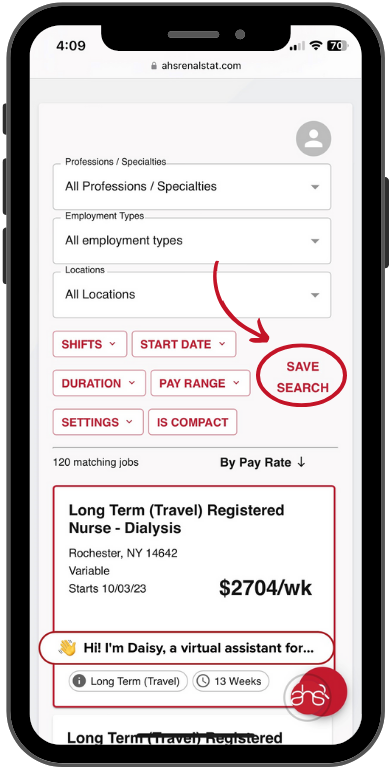A skilled nursing staff is critical to the success of any healthcare organization, and ensures that patients get high-quality, committed care. But in the United States and around the world, there is a dramatic nursing shortage that could negatively impact our society’s health and safety.
The National Center for Health Workforce Analysis projects that the shortage of registered nurses in the United States will double by 2010 and will nearly quadruple to 20 percent by 2015 (Bureau of Health Professionals Health Resources and Services Administration). Similarly, the Council on Physician and Nurse Supply reveals that 30,000 additional nurses should be graduated annually to meet the nation’s healthcare needs, an expansion of 30 percent over the current number.
Experienced nurses in specialty areas are in especially high demand, and the increasing diagnoses of diabetes and renal diseases have led to a growing dialysis population, which has intensified the demand for nephrology nurses. In response to the shortage, healthcare companies, are creating more effective ways of recruiting, training and retaining experienced nurses that are so vital to our society’s well-being.
What’s Causing the Shortage?
Historically, nurses have been almost exclusively women, and still today they comprise about 98 percent of the nursing population. One of the major factors in the nursing shortage is that women now have many more career choices than in the past, which means that the healthcare industry must spend more time and money on recruiting and retention. Likewise, the total population of nurses is growing at a slow rate and the average age of nurses is rising, and now approaches 50 years old. At the same time, baby boomers are starting to require more healthcare, putting more demands on the nursing population.
One of the most challenging aspects of the nursing shortage is that nursing education institutions across the country are struggling to expand enrollment levels to meet the rising demand. Primarily, this is due to a shortage of experienced nursing professors and instructors, rather than a lack of people applying to the programs. A related problem is the increasing complexity of the technology used in healthcare, which requires more hands-on training.
There are no simple solutions to the nursing shortage, and it’s a situation that must be addressed with a combination of public and private initiatives. In the private sector, it’s crucial for healthcare companies to create more supportive work environments, career tracks and education opportunities for people interested in pursuing nursing as a career.
Climbing the Career Ladder
More so than most professions, nurses can choose from a number of different career paths, and change directions with relative ease as they become interested in new areas. Nursing offers many different specialties, and ongoing education programs—both formal and informal—allow nurses to continually advance their skills and careers. Moreover, nurses can practice in a wide variety of settings, including hospitals, nursing homes, dialysis clinics, research labs and rehabilitation centers, just to name a few. Responding to the need for more skilled nurses, healthcare providers are developing new ways of educating and training their employees. In addition to skill development, career tracks are important to the professional development of nurses moving from novice to expert.
A Promising Career Looking Ahead
It is now projected that if current trends continue, the United States will need to educate about 1.1 million new nurses by 2012—almost half the size of today’s nursing workforce (U.S. Department of Labor).
As daunting as the numbers may be, there are good reasons to believe that an increasing number of people will pursue a career in nursing. In a down economy, people are looking for stable careers that have room for growth, and nursing fills both of those needs. And given the amount of education and training that’s required, nursing offers relatively good pay, and there are plentiful positions available in a wide range of areas. With an associate-level degree, a nurse can begin working within two years of beginning a formal education program. Nursing also has a high level of job satisfaction, especially in areas such as renal care, where nurses see patients over time and can form fulfilling, long-term relationships with them. Nephrology nurses also have the opportunity to work with different modalities—such as in-center nocturnal and home dialysis—and create flexible schedules to facilitate ongoing education.
But if patients are going to continue to receive quality care, healthcare companies will have to implement more programs and policies that motivate nurses to pursue their jobs as a long-term career. Of course, to make a real difference these programs need to be developed and implemented in a cohesive, consistent way. ~Renalbusinesstoday~
AHS RenalStat is a leading healthcare staffing company specializing in temporary, travel and permanent placement for dialysis nurses and managers throughout the United States.
For more information, contact:
AHS RenalStat
A Leading Healthcare Staffing Company
877-309-3546
www.ahsrenalstat.com


